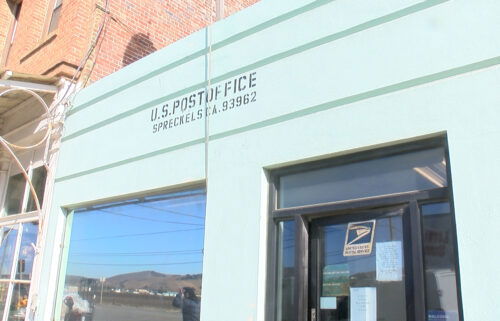UK asylum bill would ‘undermine’ international law, says UN refugee agency
By Sarah Diab, Niamh Kennedy and Sana Noor Haq, CNN
The UK government has insisted a controversial plan aimed at blocking undocumented migrants from entering the country on small boats is legal, despite criticism from the United Nations and other global bodies.
British Home Secretary Suella Braverman introduced an illegal immigration bill this week aimed at tackling people crossing the English Channel to reach the UK, which if passed “would amount to an asylum ban,” the UN refugee agency (UNHCR) said in a statement.
The UK government has made stopping small boats arriving a top priority. Under the plans, those arriving via this route face detention and deportation. Those removed will be banned from returning.
But the UNHCR said Tuesday the bill would be a “clear breach” of the 1951 Refugee Convention, which defines refugees as those who are seeking refuge from persecution. It also gives them the right to not be sent back home into harm’s way, except under extreme circumstances.
“Most people fleeing war and persecution are simply unable to access the required passports and visas. There are no safe and ‘legal’ routes available to them. Denying them access to asylum on this basis undermines the very purpose for which the Refugee Convention was established,” added the statement from the agency.
A national debate
An increasing number of refugees and migrants fleeing conflict, persecution and poverty risk the perilous crossing between Britain and France every year, inflaming a national debate on the issue of migrant crossings to the UK.
Tens of thousands of people travel in dinghies unfit for the voyage, and at the mercy of people smugglers, hoping to claim asylum or economic opportunities in the UK. In 2022, 45,755 people crossed the Channel in small boats, according to UK government data. More than 3,000 people have already made the crossing this year.
In December, at least four people died after a small boat likely to be carrying migrants capsized in the English Channel. The previous year, 27 people drowned in bitterly cold waters off the coast of France, in one of the deadliest incidents in the Channel in recent years.
It has prompted the UK government to adopt increasingly hardline policies, a move that has been roundly condemned by humanitarian bodies and NGOs.
“The government’s new legislation ignores the fundamental point that most of the people in small boats are men, women and children escaping terror and bloodshed from countries including Afghanistan, Iran and Syria,” Enver Solomon, CEO of the charity Refugee Council, said to CNN in a statement.
“We need an approach that replaces the chaos and cost of what we have now and focuses on compassion and competence, creating safe and orderly routes for refugees to reach the UK, such as refugee visas, and always give people a fair hearing so their rights are respected.”
Home secretary Braverman spoke to UK broadcasters on Wednesday to defend the plans, facing questions on everything from their feasibility to how they would apply to the high-profile case of Mo Farah, an Olympian who was trafficked into the UK as a child.
Playing down concerns the law would breach international agreements, Braverman told Sky News it is “not breaking the law.”
Her comments come despite that, when setting out the policy on Tuesday, she said she could not make a “definitive statement of compatibility” with human rights laws.
Meanwhile, British Prime Minister Rishi Sunak has vowed to “fight” any legal challenge to the UK government’s controversial new immigration law. He also played down concerns that the bill breached the UK’s obligations under the European Convention of Human Rights.
This is the latest in the Conservative government’s campaign to crack down on Channel crossings.
Last year, the UK government announced a scheme which would see asylum seekers deemed to have entered the UK illegally sent to Rwanda to have their asylum claims processed.
The first planned deportation flight to Rwanda was blocked under the European Convention of Human Rights, a major point of contention in post-Brexit British politics.
However, the controversial policy was deemed lawful by the country’s High Court in December.
The-CNN-Wire
™ & © 2023 Cable News Network, Inc., a Warner Bros. Discovery Company. All rights reserved.
CNN’s Chelsea Lee and Tara John contributed reporting.

